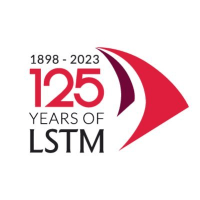Dr J Turner
No more applications being accepted
Competition Funded PhD Project (Students Worldwide)
About the Project
You will identify new approaches to advance the treatment of lymphatic filariasis (LF; elephantiasis) by targeting lymphatic vascular remodelling. You will address two complementary hypotheses:
1. lymphatic remodelling processes can ameliorate lymphatic filarial disease
2. myeloid cells conditioned by the immune response to infection co-ordinate a natural mechanism of lymphatic repair
You will be trained in pre-clinical in vivo filariasis pathology models and State of the Art bio-imaging technologies to test these hypotheses. The project requires a secondment to a leading bioimaging laboratory, University of Glasgow, as well as offering the opportunity of fieldwork in Myanamar or Ghana to profile markers of lymphatic repair in LF patients.
Funding Notes
Studentships are for full time students only and for a period of three years. Students will receive an award equivalent to the Research Council stipend (Home/EU level) and a contribution towards their running costs of £5,000 per year.
LSTM will fund fees for students supported by these studentships at the Home/EU level. There will be no additional funding available for students requiring international fees. Applicants paying international level fees will need to find additional funding from alternative sources.
The studentships will be awarded to excellent students following a rigorous short-listing procedure and interview process.
References
Debrah A et al (2006) Doxycycline Reduces plasma VEGF-C/sVEGFR3 and improves pathology in Lymphatic Filariasis.PLOS pathogens 15, 2(9)
Turner JD et al (2009) Wolbachia lipoprotein stimulates innate and adaptive immunity through toll-like receptors 2 and 6 (TLR2/6) to induce disease manifestations of filariasis. J Biol Chem. 2009 Aug 14;284(33):22364-78.
Taylor MJ et al (2010) Lymphatic filariasis and onchocerciasis. Lancet Aug 23.
Mand S, et al (2012) Doxycycline improves filarial lymphoedema independent of active filarial infection: a randomized clinical trial Clin Infect Dis.
Gibson et al (2012) A novel method to allow noninvasive, longitudinal imaging of the murine immune system in vivo. Blood vol. 119 (11) pp. 2545-2551.

 Continue with Facebook
Continue with Facebook

